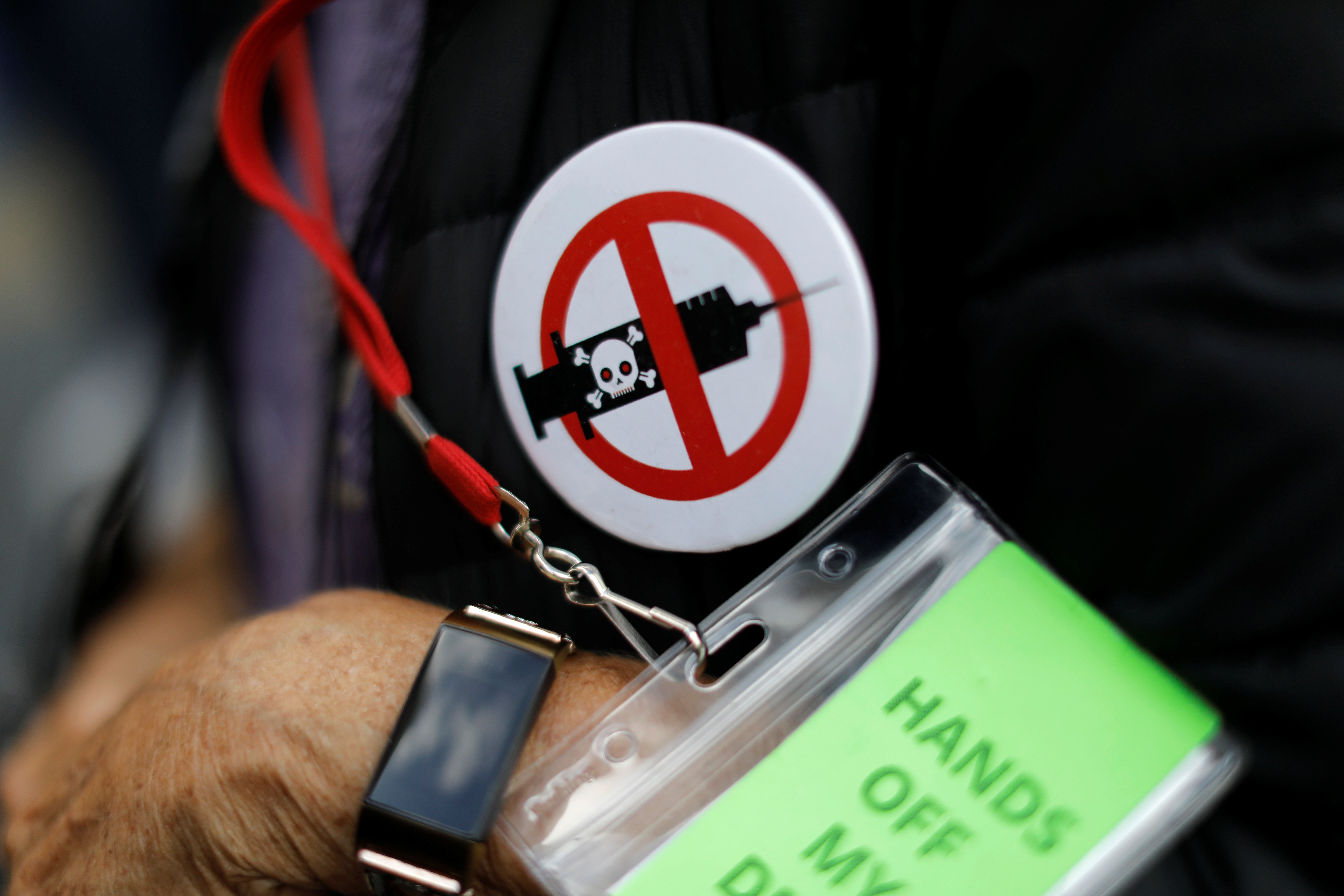Your support helps us to tell the story
From reproductive rights to climate change to Big Tech, The Independent is on the ground when the story is developing. Whether it's investigating the financials of Elon Musk's pro-Trump PAC or producing our latest documentary, 'The A Word', which shines a light on the American women fighting for reproductive rights, we know how important it is to parse out the facts from the messaging.
At such a critical moment in US history, we need reporters on the ground. Your donation allows us to keep sending journalists to speak to both sides of the story.
The Independent is trusted by Americans across the entire political spectrum. And unlike many other quality news outlets, we choose not to lock Americans out of our reporting and analysis with paywalls. We believe quality journalism should be available to everyone, paid for by those who can afford it.
Your support makes all the difference.People who refuse or are reluctant to have a Covid-19 vaccine could have suffered traumatic events in childhood, new research suggests.
Adverse childhood experiences (ACE) involving neglect, domestic violence or alcoholism during childhood are common among people who are least likely to trust NHS information, wear masks during the pandemic or follow the rules, a team of experts found.
Other examples of ACEs include parents separating or divorcing, abandonment, or having a parent with a mental health condition.
The study, published in the the open access journal BMJ Open, surveyed 2,285 people aged 18 and over in Wales during lockdown restrictions (December 2020 to March 2021).
Experts looked at nine different ACEs as well as low trust in NHS Covid-19 information, whether people supported the lifting of measures like social distancing and mandatory face coverings, breaking Covid rules and vaccine hesitancy.
They found that although 52 per cent of those in the study had not experienced any childhood trauma, around one in five had suffered one type, around one in six (17 per cent) reported two to three, and one in 10 (10 per cent) reported four or more.
The more trauma the participants had experienced in childhood, the more likely they were to mistrust NHS Covid-19 information, to feel unfairly restricted by the government and to support the end of mandatory face masks, the results showed.
The nine ACEs included in the study were: physical, verbal, and sexual abuse, parental separation, exposure to domestic violence; and living with a household member with mental illness, alcohol and/or drug misuse, or a family member in prison.
People were twice as likely to break Covid rules if they had four or more ACEs compared with none, while vaccine hesitancy was threefold higher with more than four ACEs compared with none.
More than four ACEs were also associated with a desire to scrap social distancing.
Around 38 per cent of those aged 18 to 29 with more than four ACEs were vaccine hesitant, but older age groups were much more likely to have a vaccine. Overall, eight per cent of the entire study group would not agree to a vaccine.
Around a quarter of all those in the study also admitted to at least occasionally breaking the rules.
The authors concluded: “While pandemic responses should consider how best to reach those suffering from ACEs, longer term, better compliance with public health advice is another reason to invest in safe and secure childhoods for all children.”
Previous research has suggested that mistreatment as a child may undermine trust in the future, including of health and other public services.
The latest study, funded by Public Health Wales and carried out by public health experts, suggested that if people had mistrust in one area, this was replicated in other areas.
For example, four out of 10 people reporting low levels of trust in NHS Covid-19 information also reported vaccine hesitancy, compared with just six per cent of those who did trust this source of information.
Additional reporting by PA

Join our commenting forum
Join thought-provoking conversations, follow other Independent readers and see their replies
Comments